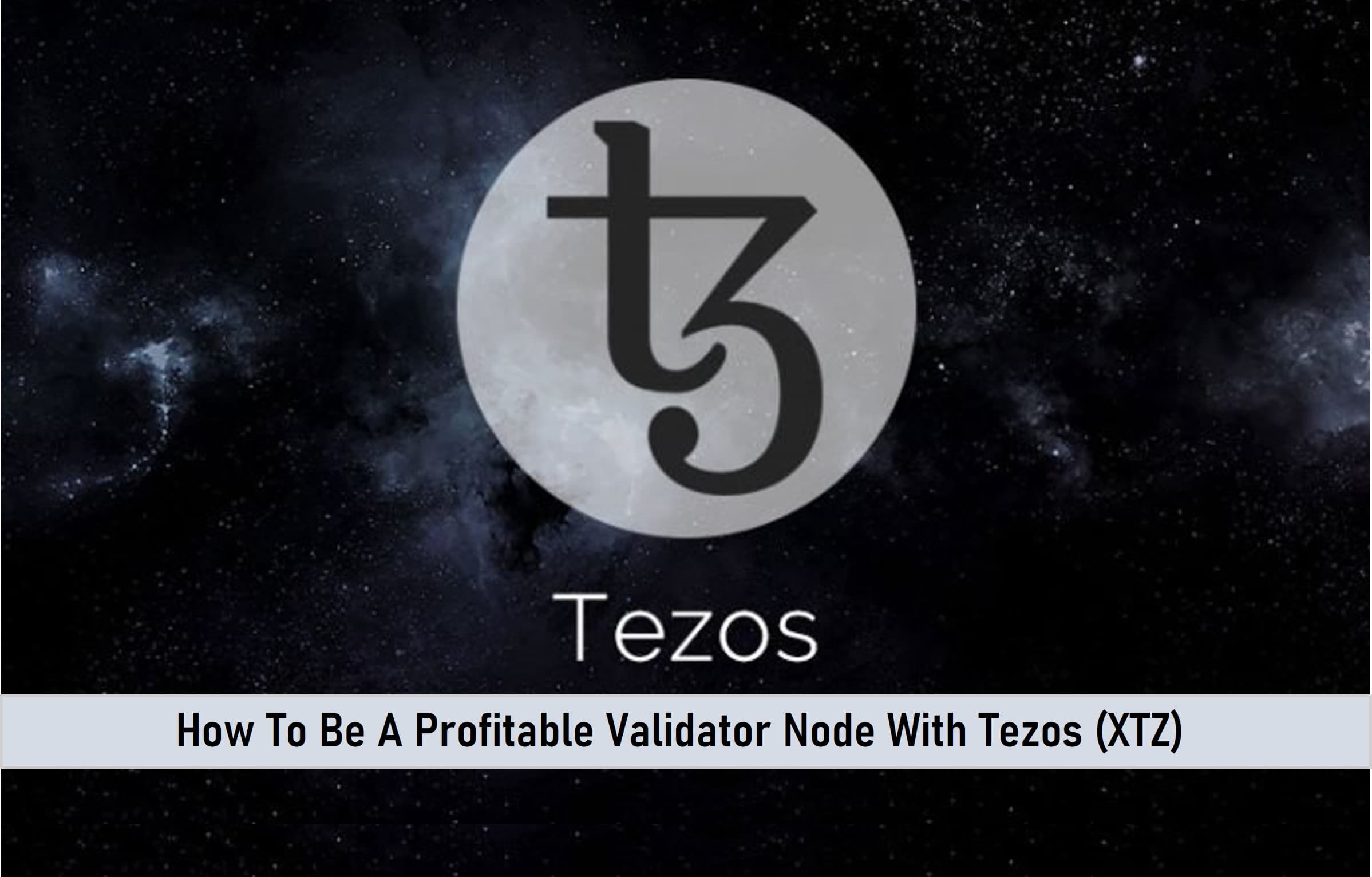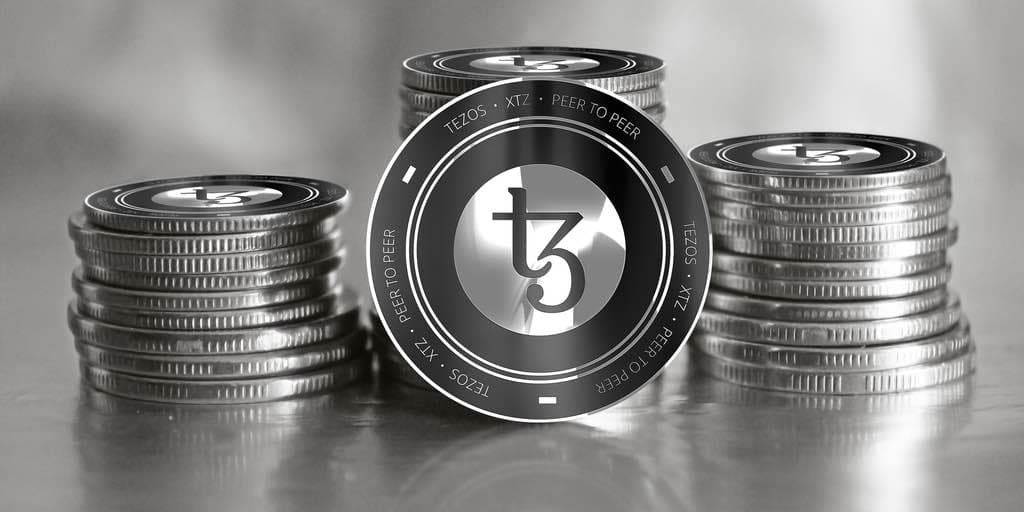
Introduction To Validating Nodes
Aside from mining cryptocurrencies like Bitcoin which adopts the proof-of-work consensus, newer and more scalable altcoins adopt the proof-of-stake consensus deploying validator nodes for the addition of transactions to the public ledger.
Validator nodes are a special type of full nodes that participates in the proof-of-stake consensus. These nodes are responsible for voting, verifying, and maintaining transaction records on the blockchain network.
Being a validator node is another way investors can earn on crypto without actually trading it. Validators secure the blockchain and the DLT (Distributed Ledger Technology) network. This is what keeps its integrity.
In the article, I’ll be highlight how to stake profitably with Tezos (XTZ).
Key Takeaways
• A Validator is a key role in proof-of-stake Blockchain technology requiring the participation of the node in securing transactions into the blockchain.
• By being a token holder, you can support the security of the network by selecting the best validators to stake on.
• You can be a profitable validator node by delegating a large number of tokens, this determines your validation power and ultimately your rewards.
• The Tezos token is rewarded to validators for a completed block and this procedure is known as Baking
SEE ALSO: How to Become a Profitable Solana Validator
SEE ALSO: What are Solana Validator Node Requirements?
SEE ALSO: Quick Steps To Stake Tezos On Coinbase
Understanding the Concept of Validators and Node?

Computers run software known as a Node.
Nodes play a very significant role in Blockchain technology and this cannot be underestimated.
Nodes are responsible for maintaining either a partial or total version of Blockchain technology and making use of its computing powers to authenticate transactions.
Transactions are confirmed via consensus guidelines involving nodes that relay data to each other.
On the Blockchain network, a device is found, it is the bedrock of the technology which allows it to thrive and operate effectively. It is referred to as the Validating Node.
The role of these nodes is to download each transaction block and cross-check against the rules of consensus.
Hence, Validators are individuals who execute a whole node and engage in consensus through publicizing votes in which cryptographic signs are enclosed by private keys.
They set up developed blocks in Blockchain and receive rewards for their validation efforts. Validators participate in administrative duties via casting votes on technology proposals. They are also weighted based on the number of stakes they have.
What is Tezos?
Tezos is a platform that is open-source where developers design applications and get all the benefits that come with the decentralized, cryptographic ledger system. Tezos also serves as a platform where smart contracts are deployed.
The platform offers scalable features for times when newly developed innovations are released and makes use of a special code to boost the safety of crypto assets. Tezos addresses the barrier facing blockchain adoption.
XTZ is the symbol for the token Tez or Tezzies in the ecosystem of Tezos. The Blockchain Tezos is supported by a PoS/Proof-of-Stake consensus mechanism instead of a PoW/Proof-of-Work e.g. Bitcoin.
Validators need to possess the stakes of XTZ to validate the network. The Tezos token is rewarded to validators for the completion of a block and this procedure is known as Baking. For every block completed, a unit of Tezo is added to the system as the validators reward.
SEE ALSO: How Many Polygon Matics is Needed to Become a Validator
SEE ALSO: How to Choose a Validator when Staking with Ledger
How to Become a Tezos Validator
Now that we understand what it means to be a Validator, our focus will be on the Tezos network particularly.
1. Securing the Ledger
The term for Validator on Tezos is Baker. The act of baking involves the broadcasting of and signing blocks to Tezos Blockchain Technology.
The role of a Baker is crucial especially in the PoS consensus; they ensure every transaction in a block is correct, has an agreed order of transaction, and there is no occurrence of double-spending.
2. Validating Transactions
All deals are validated and added to the Blockchain by Bakers. An in-built technology makes dishonest bakers at risk of losing their security deposit.
3. Earnings
Extra XTZ is given to bakers for keeping the network secure.
Earning from Baking
Join the baker’s chat room to be a part of the community. To earn from Tezos by baking, do the following:
Setting Your Node
Tezos functions on a Proof-of-Stake mechanism; the validating power is dependent on the amount of stake unlike Bitcoin and its Proof-of-Work which needs huge investments for infrastructure and is expensive to function.
The chance to validate the network and get rewarded increases with the amount of Tezos a Baker has hence, proof-of-take.
The least amount of stake needed to fix your node is a sum of 10,000 Tezos approximately $27,300 with XTZ at $2.73. This is so because 1 roll is required to commence and is equivalent to 10,000 XTZ.
You should be careful because this step is risky if you lack technical knowledge. After all, you could lose your stakes if thought to be fraudulent or double.
Delegating Stakes
A Tezos holder does not require technical knowledge to bake Tez rather, your rights can be transferred to a Validator/Baker (they don’t collect your XTZ) to carry out validation for you.
It is similar to vote privileges; the greater your quantity of XTZ, the more privileges to vote you possess. The amount of Bakers worldwide is 422.
Normally, their commissions are about 15%, yearly yield is up to 5-6% currently, which is okay for users as passive income.
The proceeds usually differ amongst Bakers because the main yield is dependent on the efficiency of the Baker. Massive yields will be gained from an efficient Baker.
A profitable Validator can:
1. Validate all correctly done transactions effectively
2. Validate missing/unbaked transactions by other validators
Frequently Asked Questions (FAQs)
1. What is the amount a Tezos baker earns?
The basic unit of XTS for validation is 10,000 coins for a roll. The yield for a roll is 27% with a yearly earning of 2,709 Tez or $6,290 for the existing $2.32 price hence, the monthly income for a Baker is about $524.
2. How hard is it to be a validator (Baker)?
Generally, baking is not difficult however, it is in proportion to your skill. When you are all into it, you’d achieve it. Getting the required skill is what helps you during the 1% period you face a challenge.
3. What is the work of a Validator?
A validator or baker is an individual who validates transactions by making sure they are genuine.
Final Thoughts
Whatever you decide to do, ensure that you put your all into it. Since Validating/Baking has a high reward potential, it depends on how much you’re willing to develop your potentials to earn.
Read More




